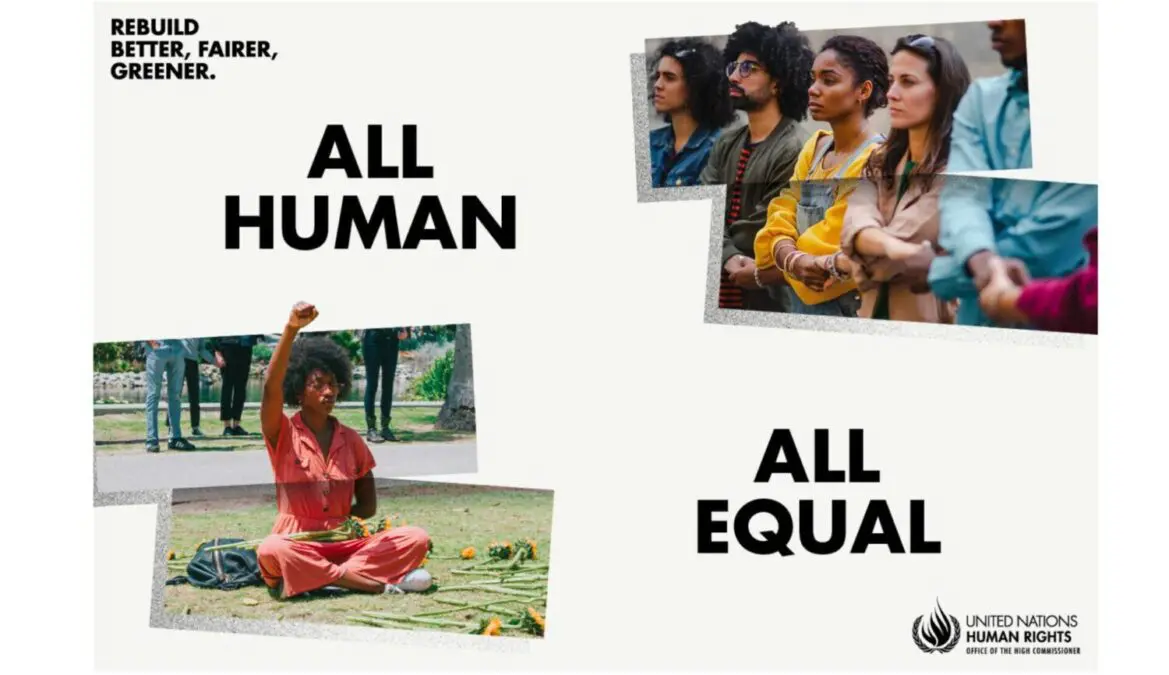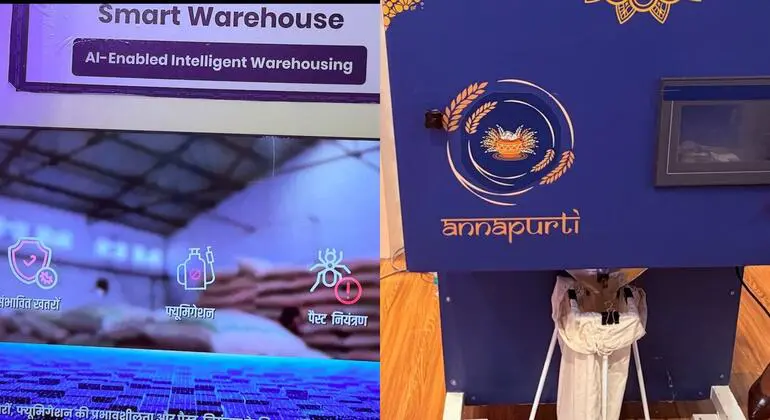The COVID-19 pandemic has brought the world to a major crossroads: either we take the route of collective action and concretely address the pervasive inequalities that have risen across the globe, or we continue on the route filled with deep-rooted injustices and pervasive inequalities.
On Human Rights Day, 10 December, we are choosing to take the path that brings us towards a future with equality at its core. We invite you to join us.
At the heart of human rights lie the principles of equality and non-discrimination. Equality has the power to help break cycles of poverty; it can give young people the world over the same opportunities; it can help in advancing the right to a healthy environment; it can help tackle the root causes of conflict and crisis.
Equality means everyone has access to COVID-19 vaccines, not just wealthy nations, and that everyone can live in dignity, no matter who they are or where they were born.
Equality “means that we embrace our diversity and demand that all be treated without any kind of discrimination,” says UN Human Rights High Commissioner Michelle Bachelet. On Human Rights Day, we are calling for a new social contract. This means addressing pervasive inequalities and structural discrimination with measures grounded in human rights. It requires renewed political commitment, the participation of all, especially the most affected, and a more just distribution of power, resources and opportunities.
Equality and non-discrimination are the keys to the prevention of some of the biggest global crises of our time. Human rights have the power to tackle the root causes of conflict and crisis, by addressing grievances, eliminating inequalities and exclusion, and allowing people to participate in decision-making that affects their lives. Societies that protect and promote human rights for everyone are more resilient and sustainable and stand better equipped to weather unexpected crises such as pandemics and the impacts of the climate crisis. As we continue on the path towards the 2030 Agenda for Sustainable Development, and countries’ commitments to leave no one behind, we must strive for a world where a life of equality in dignity and rights is a lived reality for all.
On Human Rights Day 2021, High Commissioner Michelle Bachelet will invite us all to join efforts for equality, so that we recover better, fairer, and greener from this crisis.
Human Rights Day is marked every year on 10 December to commemorate the day in 1948 the UN General Assembly adopted the Universal Declaration of Human Rights.
Every year on 10 December, the world celebrates Human Rights Day, the very day when, in 1948, the United Nations General Assembly adopted the Universal Declaration of Human Rights.
The Declaration consists of a preamble and 30 articles that set out a broad range of fundamental human rights and freedoms to which all of us, everywhere around the world, are entitled. It guarantees our rights without distinction of nationality, place of residence, gender, national or ethnic origin, religion, language, or any other status.
The Declaration was drafted by representatives of all regions and legal traditions. It has over time been accepted as a contract between Governments and their peoples. Virtually all States have accepted the Declaration. It has since served as the foundation for an expanding system of human rights protection that today focuses also on vulnerable groups such as persons with disabilities, indigenous peoples and migrants.
Equality in dignity and rights for all in opportunities and outcomes for fairer and inclusive societies
This year’s Human Rights Day theme relates to “Equality” and article 1 of the Universal Declaration of Human Rights – “All human beings are born free and equal in dignity and rights”.
The principles of equality and non-discrimination are at the heart of human rights. Equality is aligned with the 2030 Agenda and with the UN approach set out in the document Shared Framework on Leaving No One Behind: Equality and Non-Discrimination at the Heart of Sustainable Development. This includes addressing and finding solutions for deep-rooted forms of discrimination that have affected the most vulnerable people in our societies.
Equality, inclusion and non-discrimination, in other words a human rights-based approach to development, is the best way to reduce inequalities and resume our path towards realising the 2030 Agenda.
All Human, All Equal
Worldwide Activities
The celebration of Human Rights Day highlights how people everywhere stand up for human rights and equality.
In Geneva, on 10 December, UN Human Rights hosts a live Q&A with High Commissioner Michelle Bachelet, answering your questions on human rights and equality. The online event takes place across all our social media platforms.
UN Human Rights’ presences around the world, United Nations Information Centres and other partners will also celebrate this important day.
In Costa Rica, the voices of indigenous women will be strengthened through music, breaking down the barriers of inequality.
In Cameroon, an awareness campaign will promote living together between host communities and Internally Displaced Persons.
In Ukraine, “Equality murals” will be created in different cities across the country.
In Southeast Asia, a digital campaign « Raise every voice for Equality » will unify the voices of rights holders from across the region through short-form digital media content.
In Trinidad and Tobago, an art competition will take place on the theme “What does equality mean to you?”.







